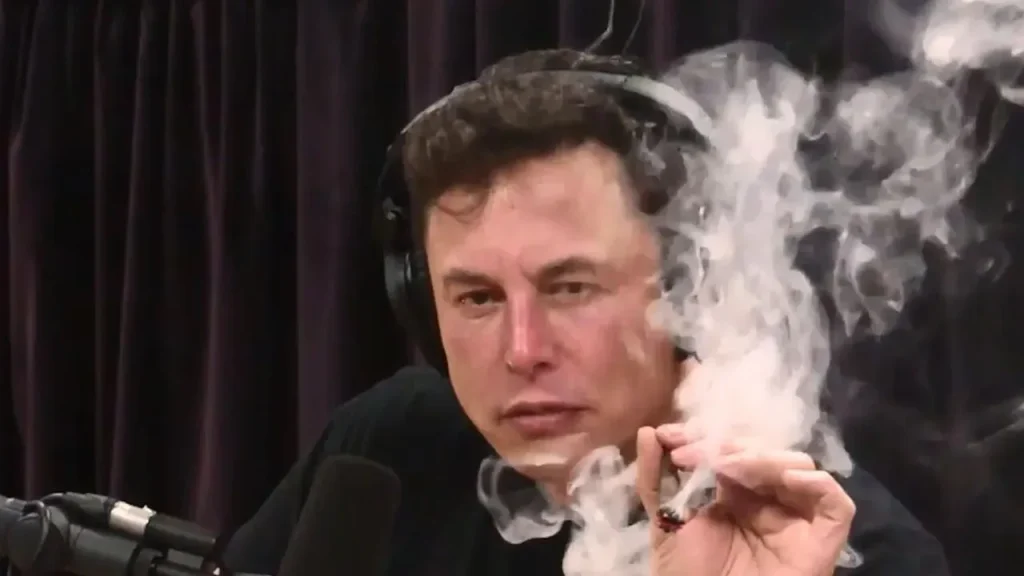In recent news, the Elon Musk drug use controversy has sparked widespread debate and intrigue, particularly following a revealing article by The New York Times. The report details Musk’s alleged use of substances like ketamine, ecstasy, and psychedelic mushrooms, expanding the conversation around his personal choices during the tumultuous Trump campaign season. This controversy not only challenges the reputation of one of the most influential CEOs in the tech industry but also intertwines with Musk’s significant financial contributions to the Trump campaign, exceeding $250 million. The intersection of his controversial drug use and his initiatives, such as the Doge initiative aimed at reducing employee headcount, adds layers of complexity to his public persona. As public scrutiny heightens, the ongoing discussion promises to reveal more about the man behind Tesla and SpaceX, and the potential implications for his business ventures.
The debate surrounding Elon Musk’s substance use has gained traction, particularly in light of allegations outlined in a recent exposé by a major American publication. These claims not only highlight his extracurricular lifestyle but also intersect with his roles during pivotal political events, specifically relating to his support of the Trump campaign. Attention has been drawn to Musk’s financial involvement in aiding Trump’s initiatives and the impact of his reported experiences with various psychoactive substances on his business and personal life. As the narrative unfolds, it provides significant insights into the balance between entrepreneurship and personal accountability. This ongoing dialogue raises essential questions about the implications of leadership choices in the fast-paced world of technology and politics.
Elon Musk’s Deflection on Drug Use Controversy
During a recent press event in the Oval Office, Elon Musk faced intense scrutiny regarding a New York Times article that outlined his alleged drug use during the Donald Trump campaign. The report claimed that Musk’s use of the anesthetic ketamine did not remain occasional and included accusations of his use of ecstasy and psychedelic mushrooms. When a Fox News reporter attempted to probe Musk on this sensitive issue, the CEO abruptly dismissed the inquiry, implying that the Times’ credibility had been compromised due to their previous reporting related to the Trump-Russia inquiry.
Musk’s readiness to deflect the conversation highlights not only his connection to the ongoing political narrative surrounding Trump’s 2024 campaign but also raises questions about transparency among powerful figures. By undermining the New York Times, Musk attempts to reshape the narrative while avoiding potential repercussions of the drug use claims. This approach reflects a broader trend among public figures who seek to control the discourse surrounding their credibility and actions. As the situation evolves, observers will watch closely to see how public opinion shapes the discourse around Musk’s alleged drug use and its implications.
Financial Support for Trump’s Campaign and Drug Allegations
Elon Musk’s involvement in the political arena became more pronounced as he emerged as a major financier for Donald Trump’s 2024 campaign, pledging over $250 million. Despite the ongoing controversies, including allegations about his drug use detailed by the New York Times, Musk has maintained a prominent role in campaign strategies, such as the controversial DOGE initiative aimed at reducing employee headcount for Trump. This investment has provoked discussions about the influence of tech moguls on political currents, especially given Musk’s significant financial contributions.
The juxtaposition of Musk’s financial support for Trump with allegations of his personal drug use brings to the forefront issues of public accountability and ethical leadership in American business practices. As Musk continues to engage publicly and politically, stakeholders and voters alike are left to ponder whether personal conduct should impact professional credibility and support in the political landscape. The interplay between Musk’s contributions and his personal controversies underscores a complicated relationship between politics, power, and public perception.
Debate Over Psychedelics and Leadership Ethics
The discussion surrounding Elon Musk’s reported use of psychedelic mushrooms and other substances brings up critical questions regarding personal choice and its implications for leadership. In the context of his role in supporting Trump’s campaigns and initiatives, this controversy prompts reflection on the broader societal perceptions of psychedelic substances, especially as various regions explore legalization and therapeutic use for mental health. Musk’s situation can serve not only as a case study in leadership ethics but also as a conversation starter about evolving views on drug use and its impact on professional personas.
As audiences are increasingly aware of the intersection between mental health, wellness, and responsible drug use, Musk’s narratives can create a dialogue about how personal experiences shape public figures’ decision-making processes. The intricate balance he strikes as a high-profile CEO advocating for significant political and social initiatives amid his controversies may illustrate the dynamic interplay between personal liberty and public responsibility.
Media’s Role in Shaping Public Perception of Musk
The media plays a critical role in how public figures like Elon Musk are perceived, particularly in light of recent allegations of his drug use reported by the New York Times. Musk’s dismissive response to the inquiries surrounding this issue reflects a strategic approach to managing media narratives. By relegating the reporting to ‘fake news,’ Musk positions himself as a victim of sensationalism, attempting to mitigate the potential fallout while redirecting the narrative back to his contributions to technological advancements and political efforts.
However, the interplay between Musk’s powerful media presence and his controversial behaviors serves as a double-edged sword. While he can amplify his initiatives through social media platforms, his response to criticism can also provoke backlash and fuel further scrutiny. As the media landscape evolves, it becomes crucial for Musk and other public figures to navigate these challenges with a clear understanding of the implications of their actions and comments.
Public Reactions to Musk’s Drug Use Claims
Public reactions to the allegations surrounding Elon Musk’s drug use have been mixed, reflecting the complexities of celebrity culture and accountability. Many supporters argue that his innovative contributions and audacity in the business world overshadow any personal controversies he may face. However, critics assert that such behavior undermines his credibility as a leader, especially given his substantial financial backing of political campaigns aimed at shaping national policies.
This dichotomy in public reaction illuminates a broader cultural discourse about the expectations placed on leaders, particularly in terms of ethical conduct and personal integrity. Should Musk’s alleged use of drugs influence public opinion about his capabilities as a visionary leader? As conversations continue to unfold, the ongoing scrutiny surrounding Musk’s life and choices raises critical questions on how public figures are held accountable for their personal actions against their professional accomplishments.
The Impact of Musk’s Advocacy on Drug Policy Reform
Elon Musk’s involvement in both the tech industry and political advocacy provides a unique platform for discussing drug policy reform, particularly concerning psychedelics. Given his reported use of substances like psychedelic mushrooms, Musk could potentially influence public opinion and legislative discussions surrounding the legalization of psychedelics for therapeutic use. His stature as an influential figure may empower initiatives aimed at re-evaluating drug policies that have historically been restrictive.
Musk’s advocacy could align with ongoing movements that promote the decriminalization of psychedelics, fostering a more progressive view on drug use that prioritizes mental health treatment. As attitudes shift, his participation in the narrative surrounding psychedelics may have far-reaching implications for drug policy reform in the United States. Observers will keenly watch his next steps as he navigates this complex landscape.
The Complex Relationship Between Tech and Politics
The intricate relationship between technology leaders like Elon Musk and politics is becoming increasingly salient in contemporary discourse. With Musk’s heavy financial backing of Donald Trump’s 2024 campaign and the accompanying controversies, observers are drawn to how tech executives wield their influence in shaping political landscapes. Musk’s role exemplifies the growing intersection of tech powerhouses and political machinations that drive change in public policy.
As technology continues to permeate aspects of civic life and governance, the expectations placed on figures like Musk become multilayered. This relationship is sometimes scrutinized, particularly when controversies such as drug usage arise. Understanding the implications of Musk’s dual identity as a tech leader and a political benefactor offers insights into the responsibilities of those who occupy significant positions in modern governance.
Navigating Media Ethics in Reporting on Celebrities
The ethics of media reporting on high-profile figures such as Elon Musk is an ongoing debate, particularly in light of the drug allegations made by the New York Times. The balance between public interest and personal privacy remains a significant concern, especially as media narratives can shape public perception and impact professional reputations. As media outlets navigate these complexities, the responsibility lies in ensuring that reporting is fair, factual, and considers the broader implications of sensationalism.
Musk’s treatment by the media following such allegations poses ethical questions around accountability and accuracy. As public figures respond to scrutiny, the media’s role in fostering informed discourse about their lives will be crucial in shaping how public perceptions evolve. Future coverage may need to reflect a more nuanced perspective that weighs the personal actions of individuals against their broader contributions to society.
Lessons on Accountability from Musk’s Controversies
Elon Musk’s recent controversies serve as teachable moments about accountability in leadership. The duality of his complex persona, as an innovator in tech and a political player, raises critical questions about the standards of behavior expected from either realm. By examining Musk’s responses to both media scrutiny and personal challenges, audiences are prompted to reflect on the nature of accountability in public life and the factors that contribute to the moral frameworks governing leaders across industries.
These lessons extend beyond Musk and illuminate broader societal expectations of accountability among influential figures. As controversies surrounding public figures continue to unfold, the conversations sparked by Musk’s situation can contribute to a deeper understanding of the cultural and ethical dimensions of leadership in the modern world.
Frequently Asked Questions
What is the Elon Musk drug use controversy about?
The Elon Musk drug use controversy stems from allegations reported by The New York Times, detailing Musk’s alleged use of anesthetics like ketamine, ecstasy, and psychedelic mushrooms during Donald Trump’s campaign. The report suggested that these drug uses were more frequent than occasional instances, raising concerns about his actions during this politically charged period.
How did Elon Musk respond to allegations of drug use during the Trump campaign?
Elon Musk responded to the allegations by deflecting questions from reporters about the New York Times article. He questioned the publication’s credibility and sought to shift the conversation away from his alleged drug use, highlighting his focus on leadership instead.
What role did Elon Musk play in Trump’s campaign regarding drug use allegations?
Elon Musk was a significant financial backer of Donald Trump’s campaign, contributing over $250 million. His involvement raised eyebrows, particularly amid allegations of drug use, as he led initiatives like the DOGE initiative, which aimed to streamline operations and reduce employee headcount.
Did Musk’s drugs use impact his business operations?
The controversy surrounding Elon Musk’s drug use, particularly during the Trump campaign, prompted discussions about his business practices and leadership. While Musk denies any wrongdoing, critics argue that such controversies could affect public perception and trust in his leadership at Tesla and SpaceX.
What substances has Elon Musk been accused of using during the controversy?
Elon Musk has been accused of using various substances, including ketamine, ecstasy, and psychedelic mushrooms, during the period surrounding Donald Trump’s campaign, as reported by The New York Times. These allegations raised significant discussions about drug use in high-profile figures.
How has the New York Times covered the Elon Musk drug use controversy?
The New York Times covered the Elon Musk drug use controversy by detailing allegations of his substance use during Donald Trump’s campaign, highlighting the extent of these claims and Musk’s subsequent reaction to their report, which included questioning the newspaper’s credibility.
What impact did Musk’s drug use controversy have on the DOGE initiative?
While the specifics of Elon Musk’s drug use controversy and the DOGE initiative’s impact remain unclear, the scandal could overshadow public perception of both Musk’s leadership and his initiatives aimed at corporate efficiency during Trump’s campaign.
How did Elon Musk’s drug use allegations relate to his actions during the Trump campaign?
The allegations of Elon Musk’s drug use are notably juxtaposed with his high-profile support for Donald Trump’s campaign, where he contributed significantly and led initiatives like the DOGE initiative. This dual focus raised questions about the implications of his personal choices on his public roles.
| Key Point | Details |
|---|---|
| Elon Musk deflects drug use claims | Musk avoided answering questions about a New York Times report on his alleged drug use, including ketamine, ecstasy, and psychedelic mushrooms. |
| Musk’s financial support for Trump | Musk contributed over $250 million to Trump’s 2024 campaign, reflecting his strong support for the former president. |
| Controversy with The New York Times | Musk criticized the New York Times for its reporting, referring to their past coverage involving the Trump-Russia inquiry that won a Pulitzer Prize. |
| Reactions from the White House | A White House spokesperson noted Musk’s significant role in federal initiatives to curb government inefficiencies, emphasizing his commitment despite being a CEO. |
| Legal disputes related to reporting | Musk’s comments coincided with ongoing legal disputes regarding defamation claims against The New York Times stemming from their reporting on the 2016 election. |
Summary
The Elon Musk drug use controversy has emerged as a significant topic, characterized by Musk’s dismissal of allegations regarding his alleged drug use patterns. The conversation surrounding Musk highlights broader issues linked to political funding, media accountability, and the intersection of corporate leadership with governmental operations. His financial backing of Donald Trump and the ensuing media scrutiny reflect the complex dynamics of public figures in contemporary politics, particularly in the context of the 2024 election. Musk’s reluctant engagement with the media on this topic underscores the contentious relationship between high-profile individuals and the press.



